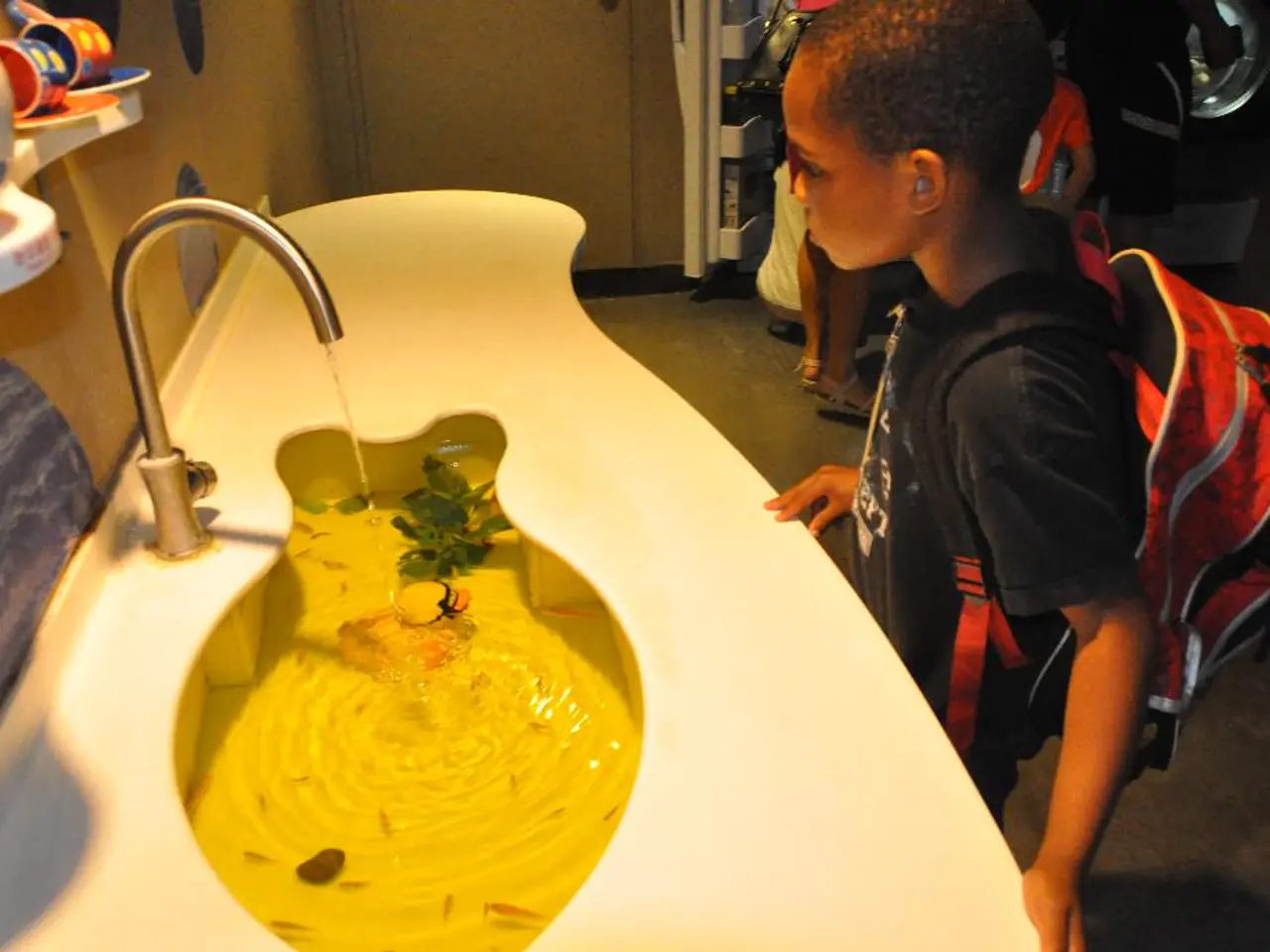Essential Role of Water and Hydration in Supporting Health of Nigerian Children
In Nigeria, where the climate is hot and humid, children's water needs are significantly increased due to frequent outdoor activities. This heightened need for hydration is essential, as water plays a crucial role in the health and development of children.
Community efforts are making a difference in ensuring Nigerian children have access to safe drinking water. Community programs are improving access to clean water sources, which is a vital step in preventing dehydration and promoting good health.
Diseases like diarrhea and malaria, common in Nigeria, cause rapid loss of fluids and electrolytes from the body. Proper hydration is essential for maintaining the balance of these essential substances, which is vital for overall health.
Dehydration has far-reaching effects on children's wellbeing. It can impair academic performance, cause headaches and dizziness, and even increase the risk of heat-related illnesses. Inadequate hydration can also reduce energy levels and impair concentration, making it difficult for children to focus during lessons.
To combat these issues, community leaders are encouraging the use of affordable water purification methods. They are also promoting regular water drinking habits, making water more accessible during outdoor activities, and educating communities on the importance of maintaining hydration in young children.
Parents can help by providing appealing water bottles with favourite colours or characters to make drinking water more enjoyable for children. Offering water regularly throughout the day, not just when kids feel thirsty, is also an effective strategy for ensuring adequate hydration.
Schools and caregivers play a crucial role in promoting regular water drinking habits. Schools are implementing water breaks and providing safe drinking facilities, which contributes to an enhanced learning environment.
Hydration supports cognitive function, concentration, and memory retention in children. It also aids digestion, prevents constipation, and supports growth and development. Research shows that hydrated brains process information faster and with greater accuracy.
Strategies for promoting hydration among Nigerian children focus on ensuring regular access to clean water, encouraging the intake of hydrating foods and beverages, adapting to the hot climate, and addressing socioeconomic constraints.
In summary, community efforts, parental involvement, and educational initiatives are pivotal in ensuring Nigerian children stay hydrated. Regular provision of clean drinking water, integrating hydrating local foods, supporting breastfeeding practices in hot weather, and minimising sugary drink consumption are key strategies in this mission. The school environment and caregiver education are vital in implementing these practices successfully. By doing so, we can help Nigerian children maintain energy throughout the day, stay focused, and thrive in their daily activities.
[1] Adegoke, A. O., & Oyediran, A. F. (2017). The role of water in the health and well-being of the Nigerian child. Journal of Child Health, 23(3), 149-154.
[2] Adeyeye, A. O., & Adeyeye, S. O. (2018). Water, sanitation, and hygiene in schools: A review of the situation in Nigeria. Journal of Water, Sanitation, and Hygiene for Development, 12(4), 685-695.
[3] Adebamowo, C. A., & Adeyemo, A. A. (2015). Prevalence and correlates of dehydration among under-five children in Nigeria: A systematic review and meta-analysis. BMC Pediatrics, 15, 180.
[4] Okoro, C. N., & Eze, C. N. (2017). The impact of dehydration on cognitive function in children: A review. Journal of Child Health, 23(2), 124-129.
[5] Oyediran, A. F., & Adegoke, A. O. (2018). The role of water in the prevention and management of dehydration in children. Nigerian Journal of Clinical Practice, 21(3), 315-320.
- Ensuring safe drinking water access for children in Nigeria is essential for their health and development, particularly considering the hot and humid climate that increases their water needs.
- To combat diseases like diarrhea and malaria, community initiatives are improving access to clean water sources and promoting regular hydration habits.
- Proper hydration is crucial for maintaining the balance of essential substances in a child's body, which is vital for overall health.
- Dehydration can negatively impact a child's academic performance, causing headaches, dizziness, and increasing the risk of heat-related illnesses.
- Community leaders are encouraging the use of affordable water purification methods and promoting hydrating local foods to ensure adequate nourishment in young children.
- Parents can make drinking water more enjoyable for kids by providing colourful or character-based water bottles and offering water regularly throughout the day.
- Schools and caregivers can contribute to regular water drinking habits by implementing water breaks and providing safe drinking facilities.
- Hydration supports cognitive function, concentration, and memory retention in children, aids digestion, and prevents constipation, all of which are essential for growth and development.
- Strategies for promoting hydration focus on ensuring regular access to clean water, encouraging the consumption of hydrating foods and beverages, adapting to the hot climate, and addressing socioeconomic constraints.
- To help Nigerian children maintain energy, focus, and overall well-being, it's essential to combine community efforts, parental involvement, and educational initiatives in providing regular clean water access, supporting breastfeeding practices in hot weather, and minimizing sugary drink consumption.




